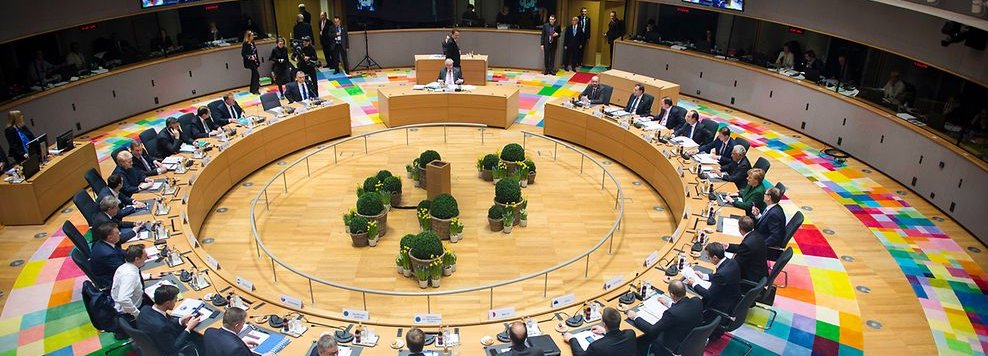
The German Renewable Energy Federation (BEE) welcomes the COM proposal to reduce GHG emissions by at least 55 percent by 2030.
21. September 2020
The German Renewable Energy Federation (BEE) welcomes the COM proposal to reduce GHG emissions by at least 55 percent by 2030. In order to be able to achieve an ambitious greenouse gas reduction target of at least 55 percent by 2030 compared to 1990, an equally ambitious increase in the targets for the share of renewable energies in gross final energy consumption and energy efficiency are necessary. When revising the Directive (EU) 2018/2001 the Commission should consider that there are numerous calls for at least 60 up to 65% greenhouse gas emission reductions including from the EP’s ENVI (asking for an at least 60% reduction target).
Therefore, and against the background of the impact assessment for Europe’s 2030 climate ambition the target for the share of renewable energies in 2030 will definitely have to be increased from the agreed 32%. Given the analysis laid out in the impact assessment and given the availability of efficient and economically viable solutions for renewable energy use in all enduse sectors, the 2030 renewables target should be at least 40 %. However, we would like to point out that under the right conditions a share of 45 % (as already requested by a number of stakeholders years ago) or more can certainly be achieved. The technologies for a higher proportion of renewables in electricity generation are already available at low cost in the form of (on- and offshore) wind turbines, PV systems, biomass systems, hydropower systems and other renewable energy technologies. Solar thermal and sustainable biomass applications as well as heat pumps are available for the building sector and electric vehicles powered by renewables or engines powered by sustainable biofuels are long since mature. As outlined in the EC’s strategy for a Smart Sector Integration, a combination of these technologies and a higher degree of digitalisation stand ready as the building blocks for an integrated energy transformation based on rapidly increasing shares of renewables. The subtarget in the transport sector should be set higher accordingly, at least at 20 %.
The overall strategy to reduce GHG emissions and reach climate neutrality should focus on avoiding emissions. Under no circumstances there should be any measures to promote technologies of capture, storage or processing and use of greenhouse gases for fossil fuels, for example in the form of CCS or CCU, besides for the compensation of unavoidable CO2 emissions, because they would help to delay the phase out of the fossil fuel based economy.
Furthermore, the revision should implement binding targets and milestones for the share of renewable energies in all sectors to underpin the reduction of GHG-emissions. Such goals and milestones must be set both for the European level and for each Member States in order to achieve the commissions goal to reduce GHG emissions by at least 55 percent by 2030. But the revision must also respect the subsidiarity principle as well as the Member States’ right to choose their own energy mix. It must strike the balance between mandatory target achievement and flexibility for member states in choosing their preferred mix of renewable energy, energy efficiency and energy savings.
When revising RED II, the role of decentralized and distributed electricity generation from renewable energies and energy communities as well as self-consumption and active consumers/prosumers should also be strengthened. To ensure that the shift to a fully renewable system can take place at the pace required, citizens, communities and local governments must be involved. Community energy projects or Renewable Energy Communities (RECs)increase the social support for renewable energy projects and the energy transition.
The rapid development and deployment of renewable energies must not be limited or focussed on to the electricity, but it must also be significantly intensified in the other sectors. The building and transport sector in particular have enormous potential in that regard and should be strengthened in EU legislation. The strong expansion of renewable energies in these sectors would also contribute to increased sector coupling and thus to an increase in the resilience of the energy system.
Companies all over Europe urgently need planning security over 10 years. This must be taken into account in all adjustments. Changes every two years, as is the case today, or the uncertainty that changes might be imminent, prevent investments and developments. For this reason, an ambitious target for the share of renewable energies should be set now and complemented with strengthened rules for removal of administrative barriers and mitigating investment.
The European Union’s commitment to meeting the Paris climate targets and achieving climate neutrality by 2050 will have to lead to major policy…
BEE Position on State aid for environmental protection and energy – proposals for the revised guidelines
The German Renewable Energy Federation (BEE) welcomes the European Commission’s proposal for a European industrial strategy to rebalance the economy…
A complete decarbonization of the European continent is an inevitable necessity against the background of the Paris Agreement. It provides an…
The climate law must establish a strong definition of climate neutrality. This definition needs to build on scientific evidence, which underlines the…
„Auf Europäischer Ebene ist ein Erneuerbare-Energien-Ziel von mindestens 35 Prozent unverzichtbar, um die Zusagen der EU im Rahmen des Pariser…